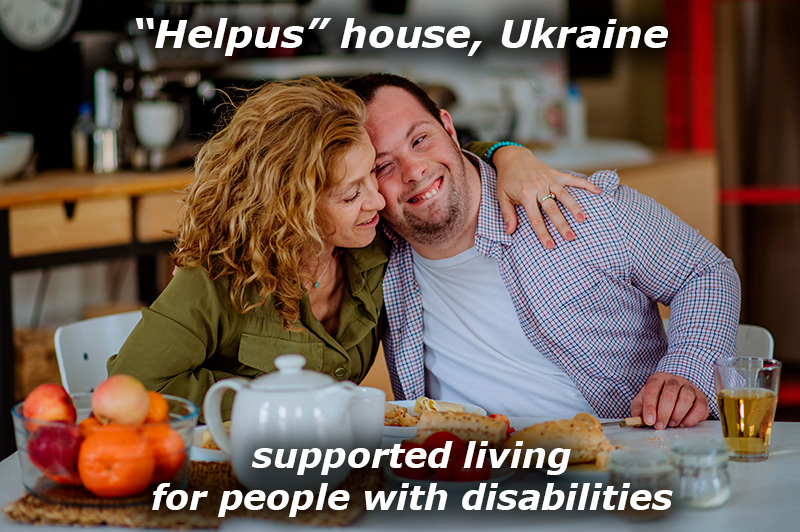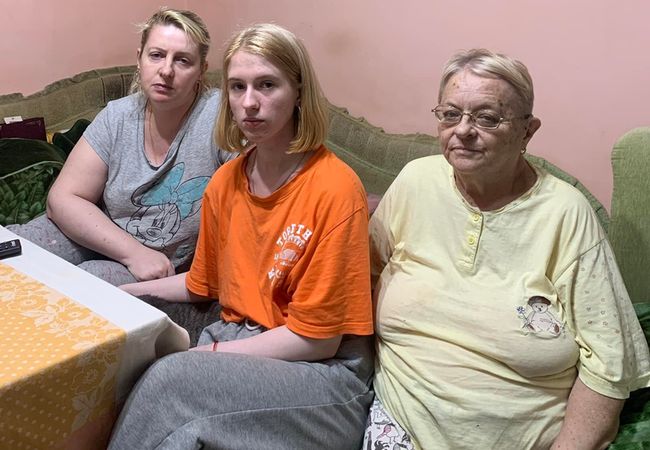
Residential building in Borodyanka, destroyed by russian shelling.
The village of Borodyanka, located 80 kilometers northwest of Kyiv, was under russian occupation throughout March. After horrific reports of massacres in Bucha, located in the same area, the Ukrainian authorities said that the situation in Borodyanka could be even worse. The russians seized the local psycho-neurological institution in the village, where about 500 patients and employees lived. The New York Times learned from the former head of the school, 43-year-old Marina Ganitskaya, who has been in charge of the hospital for only two months, how people survived the occupation.
Ever since russian troops entered Borodyanka at the end of February, the psycho-neurological institution has been left without water, electricity or heating. Marina Ganitskaya watched from the third floor of the clinic as russian trucks drove into the village and counted 500 of them. Fearing snipers, the russians began shelling houses along the highway. Local rescue services reported that dozens of civilians died under the rubble.
The PNI building, built back in the 1970s, was constantly shaking from blast waves. This had a very negative impact on the condition of patients with neurological and psychiatric disorders. Some have developed aggressive behavior. Others panicked and began to hide under beds or in closets. Three patients escaped from the clinic and still have not been found.
During the occupation, more than 12 PNI patients died. Most of them are from cold and hunger. The temperature inside the building dropped to minus seven degrees Celsius. There was no running water in the hospital. People started drinking water from the pool and everyone got sick.
On March 5, Chechen servicemen appeared on the territory of the psycho-neurological institution. Soldiers in SUVs broke through the gates of the clinic and ordered all patients to be taken out of the wards and lined up in the yard. They pointed machine guns at Ganitskaya and demanded that everyone smile and say to the camera: “Thank you, vladimir vladimirovich putin.” However, most patients only cried. In order not to harm people, Ganitskaya gathered her strength and said: “Thank you for not killing us,” after which she fainted.
The Chechens, whom the Ukrainians feared more and considered more cruel, left on the same day, but the russians came after them. Realizing that the Ukrainian military would not attack the psycho-neurological institution, they set up positions on its territory with machine guns, grenade launchers and heavy weapons. Everyone in the building was forbidden to leave it, even in search of food. The residents of the psycho-neurological institution became human shields for the russians.
“Invalids, children were taken hostage! Without medicines and food, without light and water, under shelling. The dead were buried on the street,” Georgy Yerko, acting mayor of Borodyanka, told Meduza.
Remembered by the locals as cruel and undisciplined russian soldiers, took the phones from everyone in the psycho-neurological institution. The military looted in nearby houses. They stole and drank all the medical alcohol from the hospital pharmacy.
Ganitskaya managed to hide her phone. From it, she secretly, looking out of the windows of her sister's, sent SMS to the Ukrainian military about the movements of the russians. “If we didn’t help in this way, the fighting would go on in Kyiv,” she said.
The head of the PNI herself prepared food for patients on a fire, which she lit near the building. She also organized sleeping places for dozens of local residents who moved to the hospital from their destroyed homes.
On March 13, Ganitskaya noticed a column of yellow buses on the street and immediately ran towards her. “I knew I would either get shot or save people,” she says. These were buses of humanitarian organizations that managed to agree on the removal of people from the city. Then the russian military finally allowed the PNI patients to leave the building, and they were evacuated to less dangerous areas.
Before retreating in late March, russian soldiers left blasphemous messages made with their own excrement on the walls of the hospital. “I threw up when I saw this,” Ganitskaya says. “I don’t understand who and how they were brought up, and who is capable of such a thing.”



